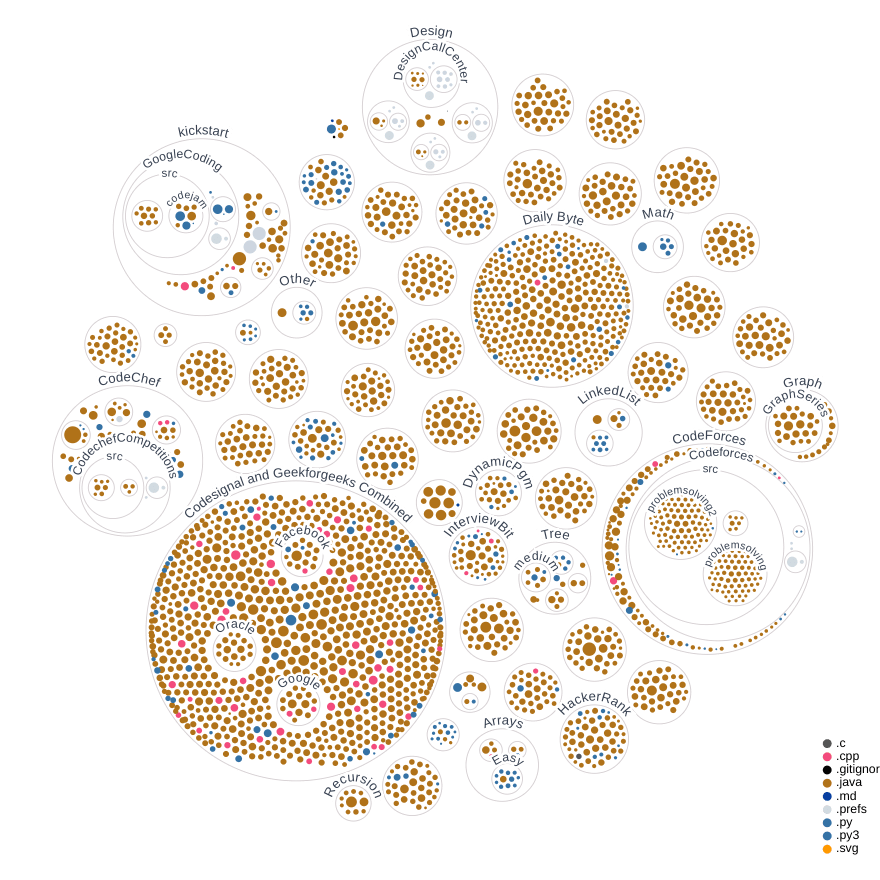Problem Statement
Given a binary tree. Find the inorder traversal of the tree without using recursion.
Sample Test Cases
Example 1
Input:
1
/ \
2 3
/ \
4 5
Enter fullscreen mode Exit fullscreen mode
Output: 4 2 5 1 3
Explanation:
Inorder traversal (Left->Root->Right) of
the tree is 4 2 5 1 3.
Example 2
Input:
8
/ \
1 5
\ / \
7 10 6
\ /
10 6
Enter fullscreen mode Exit fullscreen mode
Output: 1 7 10 8 6 10 5 6
Explanation:
Inorder traversal (Left->Root->Right)
of the tree is 1 7 10 8 6 10 5 6.
Task and Constraints
You don’t need to read input or print anything. Your task is to complete the function inOrder() which takes the root of the tree as input and returns a list containing the inorder traversal of the tree, calculated without using recursion.
Expected time complexity: O(N)
Expected auxiliary space: O(N)
Constraints:
1 <= Number of nodes <= 10^5
1 <= Data of a node <= 10^5
What is inorder traversal
It is a type of traversal in tree where first we go to left of current node, then the node, then to the right of the node
That is left -> root -> right.
It can be easily done using recursion:
ArrayList<Integer> inOrder(Node root)
{
// Code
if (root == null)
return new ArrayList<>();
ArrayList<Integer> result = new ArrayList<>();
inorder(root, result);
return result;
}
void inorder(Node node, ArrayList<Integer> result) {
if (node == null)
return;
inorder(node.left, result);
result.add(node.data);
inorder(node.right, result);
}
Enter fullscreen mode Exit fullscreen mode
It can also be done using iterative method where we use a stack and do the processing
Iterative Approach
So here we make use of stack as usual and move to the left of the root until we reach the leaf.
Then that left node is added to the result and processed back and check with the right node.
-
Let us have a current node = root.
current = root. -
We also make use of a stack .
Stack<Node> stack = new Stack<>(). -
Until the stack is null or current is null, we start the outer loop
-
Now inside this loop, we move to the left of current node until it is null and each time we add the nodes into the stack.
while (current != null) {
stack.push(current)l
current = current.left;
}
Enter fullscreen mode Exit fullscreen mode
- Now if the current reaches null, it means we reach the leaf node, so we pop it out, add it into the result and then check with current.right
current = stack.pop();
result.add(current.data);
current = current.right;
Enter fullscreen mode Exit fullscreen mode
- Finally return the result.
Code walkthrough
1
/ \
2 3
/ \
4 5
Enter fullscreen mode Exit fullscreen mode
-
stack = [] result = [] current = 1
-
push 1 -> stack[1] result = [] current.left = 2
-
push 2 -> stack[2, 1] result = [] current.left = 4
-
push 4 -> stack[4, 2, 1] result = [] current.left = null
-
pop 4 -> stack[2, 1] result = [4] current = 4
-
right of 4 is also null current.right = null
-
pop 2 -> stack[1] result = [4, 2] current.right = 5
-
push 5 -> stack[5, 1] result = [4, 2] current.left = null
-
pop 5 -> stack[1] result = [4, 2, 5] we processed with left child of 1 current = 1
-
pop 1 -> stack[] result = [4, 2, 5, 1] current goes to right of 1, ie 3 current.right = 3
-
push 3 -> stack[3] result = [4, 2, 5, 1] current.left = null
-
pop 3 -> stack[] result = [4, 2, 5, 1, 3] current.right = null
Now both stack is empty and current is null, so we return result
Complexity
time complexity: O(N)
auxiliary space: O(N)
Code
class Solution
{
// Return a list containing the inorder traversal of the given tree
ArrayList<Integer> inOrder(Node root)
{
// Code
if (root == null)
return new ArrayList<>();
ArrayList<Integer> result = new ArrayList<>();
Stack<Node> stack = new Stack<>();
Node current = root;
while (!stack.isEmpty() || current != null) {
while (current != null) {
stack.push(current);
current = current.left;
}
current = stack.pop();
result.add(current.data);
current = current.right;
}
return result;
}
}
Enter fullscreen mode Exit fullscreen mode
 Rohithv07 / LeetCodeTopInterviewQuestions
Rohithv07 / LeetCodeTopInterviewQuestions
Leetcode Top Interview questions discussed in Leetcode. https://leetcode.com/explore/interview/card/top-interview-questions
LeetCodeTopInterviewQuestions
Leetcode Top Interview questions discussed in Leetcode. https://leetcode.com/explore/interview/card/top-interview-questions-easy/
Also Question answered from CodeSignal.com : https://app.codesignal.com/

























暂无评论内容